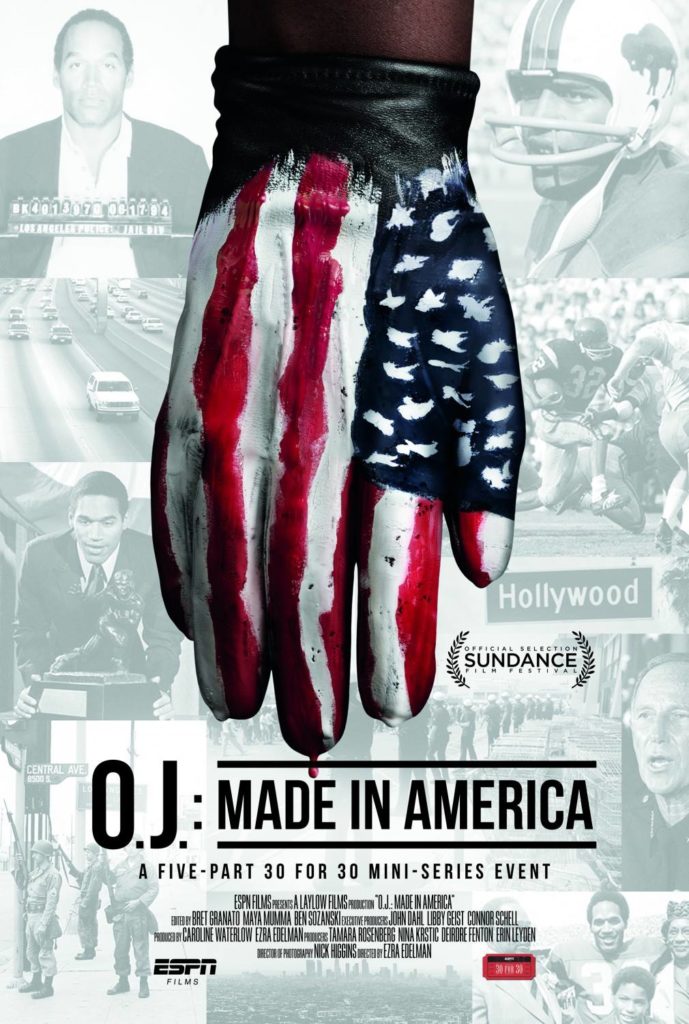
I was a bit reluctant to throw in the ESPN documentary O.J. Made in America. Last year I tuned into The People vs O.J. and thought my 1990’s sensationalist crime craving had been properly sated. I mean, why dive into this particularly insane subject again? Turns out the dramatized version was just the tip of the iceberg.
Made in America is an absolutely brilliant documentary, and this is coming from a person who has no clue what the difference between a linebacker and a goalie is (that’s cross-contamination sports, right?) Divided into five parts, it’s the bookends I found most compelling: the beginning of Orenthal’s career and the (in)famous court case’s aftermath (where even the aftermath has aftermath).
The strength of the narrative lies with not only the rise of O.J.’s career but the two adjacent cultures that would find themselves at the heart and soul of his trial: the disenfranchisement of the black community in L.A. and the Los Angeles police force’s constant brutality and indifference towards it. There’s a scene in the film where one of the jurors explains how O.J.’s acquittal became a symbolic balance of the books for the black community’s sacrifices: Rodney King, Latasha Harlins, Eulia Love. There is nothing but heartbreak here: for the black community searching for cultural justice, for Nicole Brown and Ron Goldman left to become footnotes in their own murder trial, for the parents and children of the dead who still live with it just below the surface over a decade later.
I had a moment watching it again — that white Bronco speeding down the highway passing waving signs of support, fists pumping, declaring O.J. a hero. Those same supporters denying the obvious evidence in front of them. O.J. had paid sycophants protecting him, bought to shift blame onto others. He was a celebrity who lived in affluence, as far removed from his supporters as any person could be. His goals were sociopathic and self-serving. He chased fame, popularity, acceptance. His children and friends were nothing but moveable pawns. Any sin or personal misconduct he carried could always be washed away with a “woe-is-me” speech and a sprinkling of charisma. This tale keeps being told over and over again and I can’t help but think the more things change, the more things stay the same. Made in America indeed.
